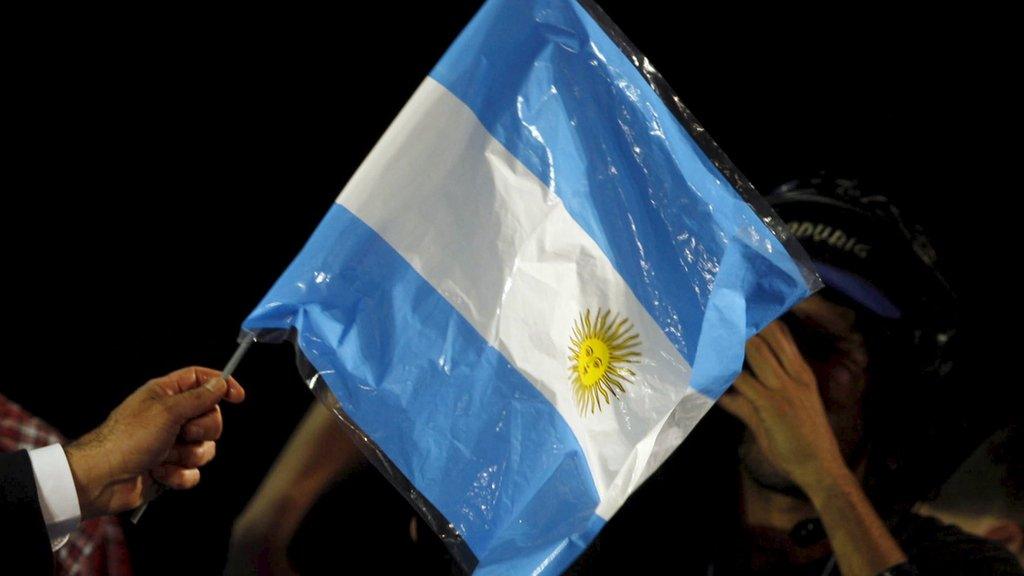Change ahead: Mauricio Macri's vision for Argentina
- Published
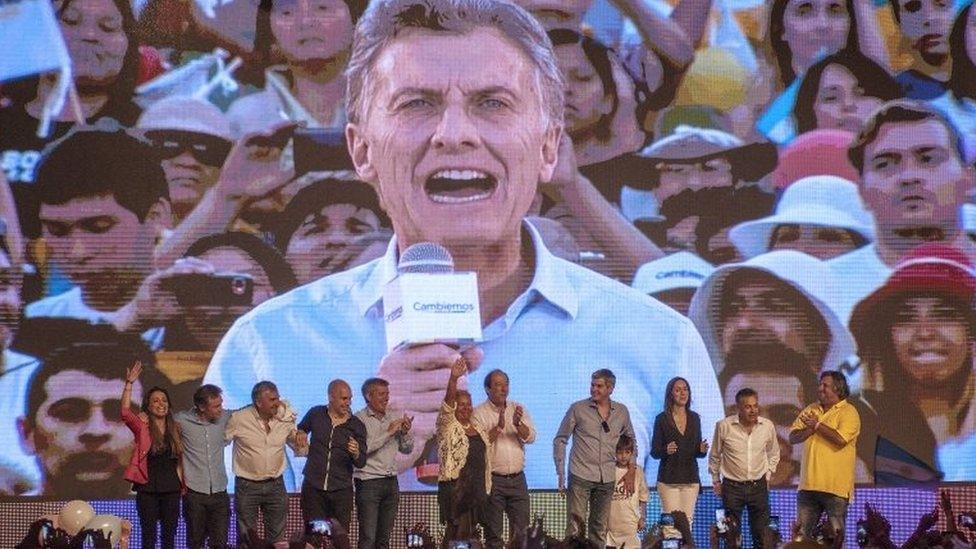
Mauricio Macri managed to unite a disparate coalition behind him
Only a year ago, Buenos Aires mayor Mauricio Macri was seen as a minor player in the race for the presidency.
But on Thursday he will be sworn in as the new Argentine president in a ceremony at the presidential palace.
In his inaugural speech, he is expected to stress the need for unity after a sometimes tense campaign and an even more acrimonious handover.
His predecessor in office, Cristina Fernandez de Kirchner has refused to attend Mr Macri's swearing-in ceremony after a spat over where it should be held.
Mr Macri wanted to take the oath of office in Congress and then receive the presidential sash and baton from Ms Fernandez in the presidential palace.
Ms Fernandez insisted that the handover of the sash and baton be conducted in Congress as well, in the same way that it happened during her inauguration and that of her husband, Nestor Kirchner before her.
The spat was compounded by the fact that President Fernandez had always hoped to hand over the presidential sash to her chosen successor, Daniel Scioli.
And most pollsters at first predicted a strong lead for Mr Scioli.
But a strong performance by Mr Macri in the first round triggered a run-off vote, the first in Argentine history.
This was followed by Mr Macri's win with 51.4% over Mr Scioli's 48.6% in the second round.
Mr Macri's victory put an end to 12 years of "Kirchnerismo", the political movement named after the late President Nestor Kirchner and his wife and successor in office, Cristina.
Uniting force
Mr Macri, a 56-year-old engineer, managed to unite behind him all those who wanted a change from Kirchnerismo, including the social-democratic Radical Civic Union, the liberal Civic Coalition and his own party, the centre-right Republican Proposal.
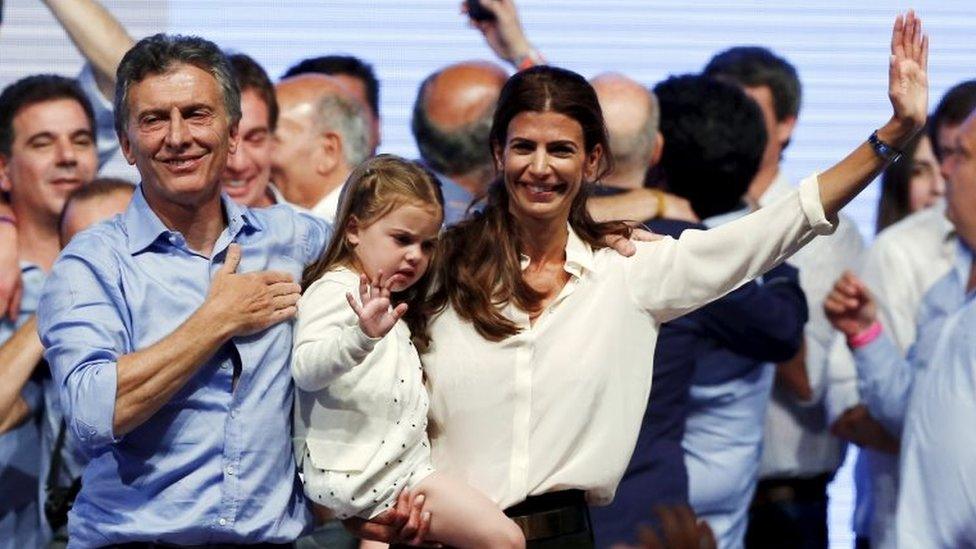
Mr Macri has been striking deals since his early 20s
While he is a relative newcomer to politics, Mr Macri is an experienced businessman who was signing deals with US tycoon Donald Trump when he was only 24 years old.
In 1991, he was kidnapped and kept captive for 12 days by a gang of corrupt policemen demanding millions in ransom.
Four years later, he became president of Boca Juniors Football Club and soon used his success there as a springboard for his political career.
He has recently tried to distance himself somewhat from his privileged upbringing, campaigning in Argentina's least developed areas.
In an attempt to win the votes of Argentina's poorest, he has devised an ambitious infrastructure plan and promised to further boost current welfare programmes.
But he has also said that swift and radical economic changes would have to be implemented to win back market confidence.
Call for change
And while "change" has been the key word in his political discourse - the coalition he leads is called Cambiemos (Let's Change) - in his victory speech, he rejected revanchist policies and said he wanted reconciliation.
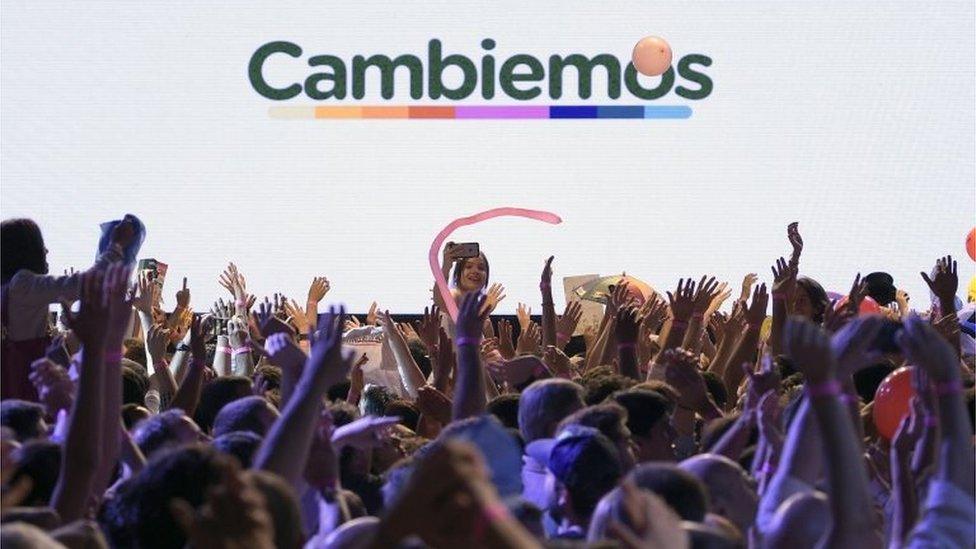
Mr Macri and his opposition coalition campaigned on a promise of change
Mr Macri knows that he will need the support of governors and trade unions loyal to the outgoing government to push through his policies.
He is the first centre-right leader to come to power since Argentina returned to democracy in 1983.
And while his political advisers were keen to present him as more to the centre than to the right, his PRO party has traditionally been seen as right-wing.
Mr Macri's chosen vice-president, Gabriela Michetti, was a vocal opponent of a change in the law which allowed same-sex couples to adopt children.
And Mr Macri himself has said that he is anti-abortion and opposes the decriminalisation of marijuana.
But the biggest departure from the outgoing president will probably stem from the free-market policies he advocates.
However, Mr Macri and his coalition partners have been adamant that they will keep and improve some of President Fernandez's most popular social policies such as child support.
Broad support
Mr Macri's party enjoys the support of business people. activists and young professionals who had not got involved in politics before.
His campaign was boosted by enthusiastic young campaigners who spread his message on social media as well as handing out sweets and balloons to voters in the streets.
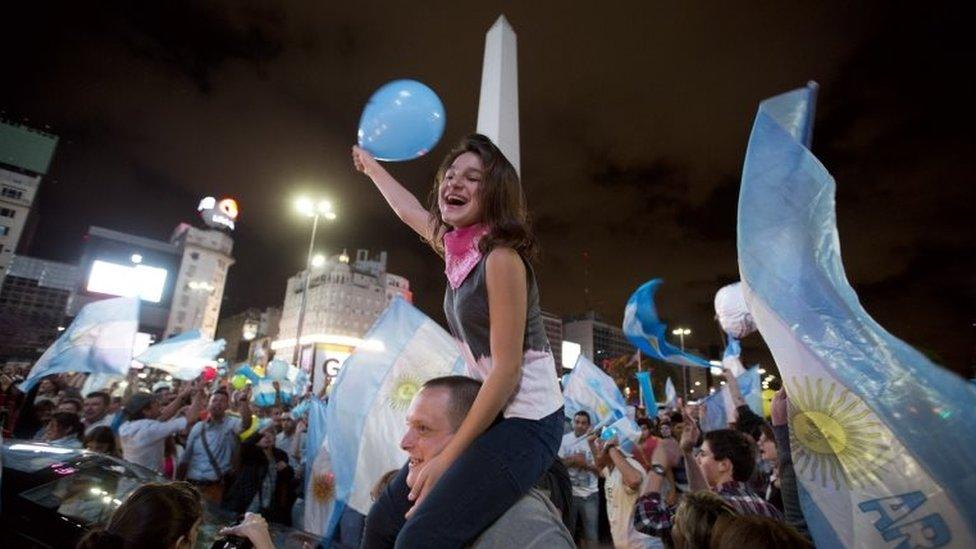
Mr Macri's party relies on a wide network of supporters
Some accused his party of offering more balloons than ideas, but its strategy means that it now has a wide network of supporters nationwide to fall back on.
It has already paid off in the election, with Mr Macri's results particularly strong in the provinces of Cordoba, Santa Fe and Mendoza.
But his support is not limited to rural areas; Mr Macri's candidate, Maria Eugenia Vidal, also won the gubernatorial election for Buenos Aires province, which for decades had been a stronghold of the outgoing government.
Now that he has won the election, Mr Macri will have to make sure not only that his coalition sticks together but also that he can gain support from those outside it.
Regional repercussions
The Kirchnerist Front for Victory has a majority in both houses of Congress and Mr Macri will need some of them to back his proposals if he wants them to become law.
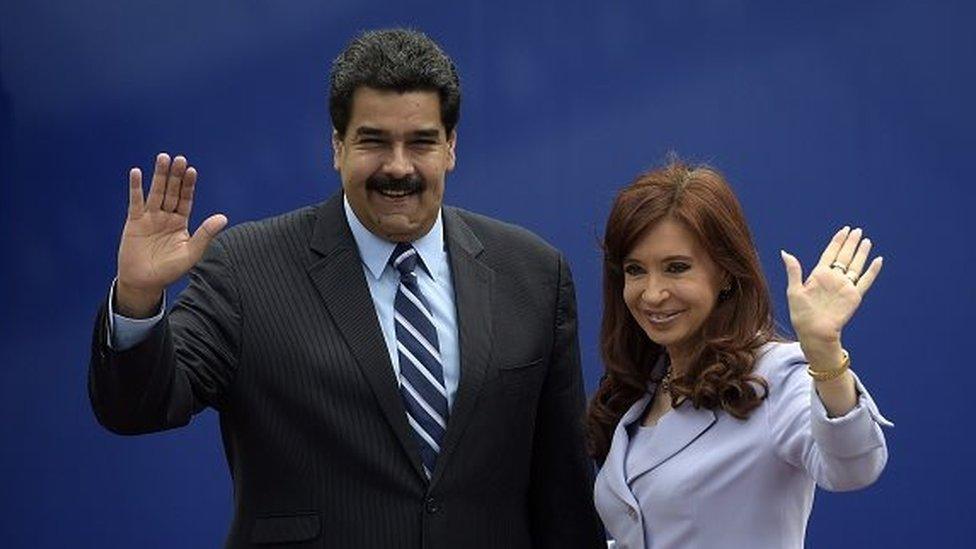
Outgoing President Cristina Fernandez had close ties with Venezuela's Nicolas Maduro
His election could also spell change for the region.
Outgoing President Cristina Fernandez was a close ally of Venezuelan leader Nicolas Maduro.
And while Mr Macri has said that he wants good relations with all Latin American countries, he has also promised to fight for the release of jailed Venezuelan opposition leaders, which is likely to put him at odds with the Venezuelan government.
Mr Macri will be hoping that his supporters' shouts of "Yes, we can!" which reverberated through his party's headquarters on Sunday, will prove more than just a spontaneous expression of joy.
- Published23 November 2015
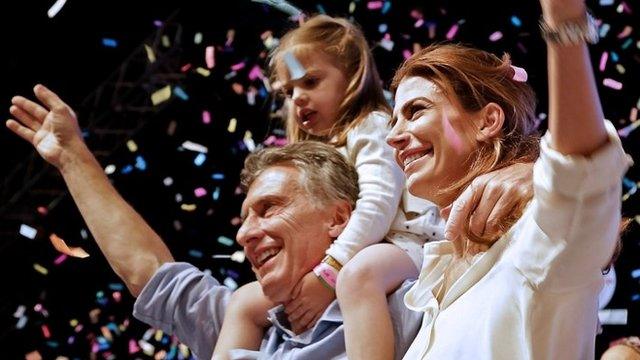
- Published19 November 2015
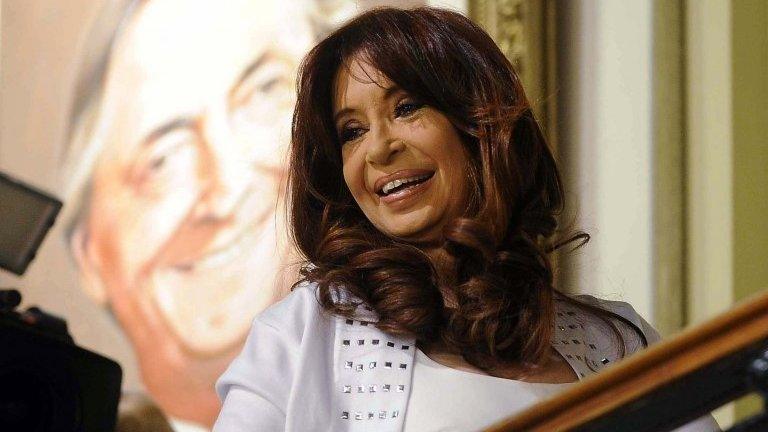
- Published20 November 2015
